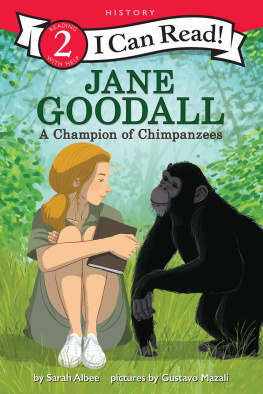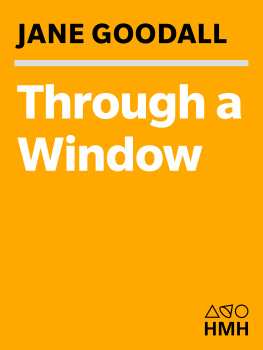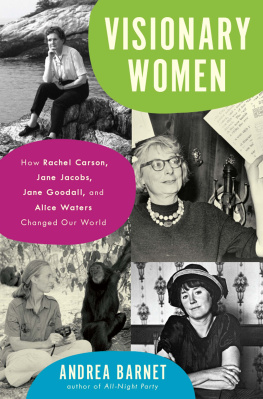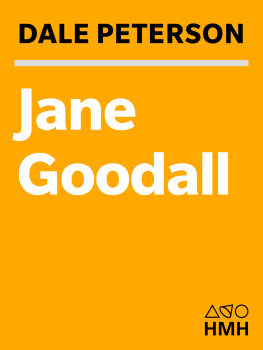Acknowledgments
No book is ever a solo endeavor. I owe a great many people thanks for their support and contributions to this one. Thanks first to my writer friend Kurt Andersen, who gave me the seeds for this book; to Anne Kreamer, for her friendship and wise counsel along the way; to Aki Busch, for her humor and support and for passing on a book that was pivotal to this project early in its young life; and to Patty Cronin, for doing the same with an article that helped set my path.
Special thanks are due to Denise Oswald, my editor, for her smart and perceptive reading and wise editorial suggestions; she did what good editors do, she made this book better; to her assistant, Emma Janaskie, for her discerning comments and invaluable computer help; to Victoria Mathews and Trent Duffy, for their copyediting; and to my agent, Joy Harris, for her enthusiasm, her savvy, her kindness, and her unwavering support and professionalism.
Thanks also to the many friends who lent me books and steered me to authors and sources I might not have found. Special mention goes to Rhiannon Leo-Jameson, the wonderful librarian at Northeast-Millerton Library; my sister Kim Springer, who gave me access to her library in Wyoming; Heidi Cunnick, for her enormous generosity in sharing her access to the Columbia University Libraries; Peter Wheelwright; and Michael Pollan. Additional thanks to Caroline Stewart, for her insights, endless generosity, and steadfast friendship; Elisabeth Cunnick, for good company and conversation; Eliza Hicks, for photographs and friendship; Jill Choder and Michael Goldman, for lent books, levity, and laughter over numerous dinners when I was a work orphan; Brooke Allen for her extraordinary close and helpful reading; Lili Francklyn, who sent me articles throughout this journey; Susan Horton, for invaluable help with Skype; Eric Rayman, for wise counsel; and to Mary and Walter Chatham, for their friendship and support. Grateful thanks also to Jim Jacobs, for his warmth, time, and memories of his mother, Jane Jacobs; Alice Waters, for the hours she spent talking to me; and to Jane Goodall for the same, for taking precious time from her family Christmas for an interview. I am grateful to Greil Marcus, for sharing his memories of Chez Panisse; Ruth Reichl, for her descriptions of Berkeley in the seventies and her insights about her friend Alice Waters; and to Samantha Wood for her in-depth tour of the Edible Schoolyard. Thanks are also due to Barbara Wright, for her close and generous reading of the manuscript at a critical juncture, and to my daughter, Pippa White, for her smart and thoughtful suggestions on my proposal. I would also like to acknowledge the many generous library curators who shared their time and expertise during my search for photographs: Martha McClintock at Getty Images; Molly Tighe at Chatham Universitys JKM Library; Mary Paris, from the Jane Goodall Institute; Hannah Love, Alice Waterss winningly generous and warm aide-de-camp; Hannah Silverman, assistant to Cervin Robinson; Stephen Goldsmith, at the Center for the Living City; Erik Huber and Mary Grace DeSagun at the Queens Library archive; Paul Civitelli and Dolores Colon at the Yale Beinecke Library archives; Benjamin Panceira at the Linda Lear Center for Special Collections & Archives at Connecticut College. Thank you also to Sarah Yake of the Frances Collin Literary Agency, trustee of the Rachel Carson estate, for her help with permissions. Finally, I remain eternally grateful to my extraordinary husband, Kit White, for his unflagging generosity and support, for patience in the face of long work nights, gourmet dinners that never stopped, close readings when I most needed them, and humor I could always count on. This would have been a lonely project without him.
Also by Andrea Barnet
All-Night Party: The Women of Bohemian
Greenwich Village and Harlem, 1913-1930
Selected Bibliography
Ackerman, Diane. A Natural History of the Senses. New York: Random House, 1990.
Alexander, Christopher. A Pattern Language. New York: Oxford University Press, 1977.
Alexiou, Alice Sparberg. Jane Jacobs: Urban Visionary. New Brunswick, N.J.: Rutgers University Press, 2006.
Allen, Max, ed. Ideas That Matter: The Worlds of Jane Jacobs. Toronto: The Ginger Press, 1997.
Anderson, Sara F. The View from the Outside: How Three Women Contributed to Changes Toward Equity and Human Rights: A Study of the Work of Rachel Carson, Jane Jacobs and Betty Friedan. New England Journal of History 52, no. 1 (Spring 1995).
Angier, Natalie. A Society Led by Strong Females. New York Times, September 13, 2016.
Aubrey, Allison. About a Third of U.S. Kids and Teens Ate Fast Food Today. The Salt (blog). NPR. September 17, 2015.
Baldwin, James. Nobody Knows My Name. New York: Vintage, 1961.
Barr, Luke. Provence, 1970:M. F. K. Fisher, Julia Child, James Beard, and the Reinvention of American Taste. New York: Clarkson Potter, 2013.
Belasco, Warren J. Appetite for Change: How the Counterculture Took On the Food Industry. Ithaca, N.Y.: Cornell University Press, 2007.
Berman, Marshall. All That Is Solid Melts into Air: The Experience of Modernity. New York: Penguin, 1988.
Berry, Wendell. The Unsettling of America: Culture and Agriculture. San Francisco: Sierra Club Books, 1977.
Bloom, Alexander, and Wini Breines, eds. Takin It to the Streets: A Sixties Reader. New York: Oxford University Press, 1995.
Bolois, Justin. The 10 Dishes That Made My Career: Alice Waters. FirstWeFeast.com, April 20, 2015.
Broms-Jacobs, Caitlin, ed. Jane at Home. Toronto: Estate of Jane Jacobs, 2016.
Bromwich, David. Martin Luther Kings Speech Against the Vietnam War. Antiwar.com, March 16, 2008.
Brooks, Paul. The House of Life: Rachel Carson at Work. Boston: Houghton Mifflin, 1972.
Carson, Rachel. Always, Rachel: The Letters of Rachel Carson and Dorothy Freeman, 1952-1964. Edited by Martha Freeman. Boston: Beacon Press, 1995.
. The Edge of the Sea. Boston: Houghton Mifflin, 1955.
. Lost Woods: The Discovered Writing of Rachel Carson. Edited by Linda Lear. Boston: Beacon Press, 1998.
. The Sea Around Us. New York: Oxford University Press, 1951.
. Silent Spring. New York: Houghton Mifflin, 2002.
. Under the Sea-Wind. 1941. Reprint, New York: Oxford University Press, 1952.
Collins, Gail. When Everything Changed: The Amazing Journey of American Women from 1960 to the Present. New York: Little, Brown, 2009.
Coontz, Stephanie. A Strange Stirring: The Feminine Mystique and American Women at the Dawn of the 1960s. New York: Basic Books, 2011.
Cronon, William, ed. Uncommon Ground: Rethinking the Human Place in Nature. New York: Norton, 1996.
Curtis, Olga. Time-Saving Modern Kitchen Miracles. Washington Post and Times Herald, April 22, 1957, C2.
Dallek, Robert. What Made Kennedy Great. New York Times, November 22, 2013.
Deitz, Paula. Literature and the Environment. The Hudson Review 66, no. 1 (Spring 2013).
Dickstein, Morris. Gates of Eden: American Culture in the Sixties. New York: Basic Books, 1977.
Dreifus, Claudia. In Half Earth, E. O. Wilson Calls for a Grand Retreat. New York Times, February 29, 2016.
Eisler, Benita. Private Lives: Men and Women of the Fifties. New York: Franklin Watts, 1986.
Ellis, W. S. A Way of Life Lost: Bikini. National Geographic, June 1986, 813-34.
Epstein, Jason. Way Uptown. New York Times Magazine, April 11, 2004.
Evans, Sara. Personal Politics: The Roots of Womens Liberation in the Civil Rights Movement & the New Left.







